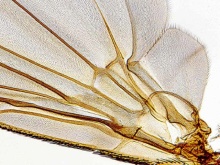Architectural Biomimetics
First Meeting: 22.10.2021, 9:45
Nature has been an inspiration for architects and engineers for a long time, even before terms like bionics or biomimetics were formally introduced. Looking at how nature works provides a fascinating pool of information to draw from in an architectural context. Not ruled by constraints immanent to the building industry, natural structures are multi-layered, highly differentiated systems, finely tuned and assembled from basic components with manifold interrelated functions of nearly infinitely diverse articulation.
Those formally rich articulations often stem from the quest for material efficiency - in nature material is expensive but diversely articulated shapes, catering to specific functional demands prevail, whereas in architecture and construction mostly the inverse is true.
While there have been a considerable number of attempts to transfer ideas derived from nature to architectural systems in the twentieth century, they were profoundly limited by structural calculability and the dominant constraints of serial production.
With the recent advances in design computation, structural simulation and robotic fabrication, the boundary between the underlying logics of ‘natural’ and ‘man-made’ structures can be re-explored and redefined.
Particularly the notion of re-configurability, adaptability and reuse - being key mechanisms of natural organisms to cope with manifold changing conditions and challenges - call to be investigated from within the realm of architecture.
The seminar will be structured in the following phases:
A1: Introduction lectures
A2: Initial screenings and role model selection
A3: Identification and abstraction of functional principles
B: Transfer and technical development
Remarks on teaching format (online or in person), proposed online-tools, group work, selection process, etc.
Introduction lectures will be online in form of recorded videos, distributed on ILIAS.
Meetings with the whole group after the introduction lectures will be held on Webex.
Phase A2, A3 and B will be in smaller groups of 3-4 Students, in collaboration with biology students from the University of Tübingen. Meetings with these smaller groups will be held on Webex.


